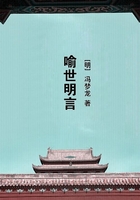It is possible that our reader, whose recollections may perhaps go back as far as the Restoration, will be surprised at the size of the frame required for the picture we are about to bring before him, embracing as it does two centuries and a half; but as everything, has its precedent, every river its source, every volcano its central fire, so it is that the spot of earth on which we are going to fix our eyes has been the scene of action and reaction, revenge,and retaliation, till the religious annals of the South resemble an account-book kept by double entry, in which fanaticism enters the profits of death, one side being written with the blood of Catholics, the other with that of Protestants.
In the great political and religious convulsions of the South, the earthquake-like throes of which were felt even in the capital, Nimes has always taken the central place; Nimes will therefore be the pivot round which our story will revolve, and though we may sometimes leave it for a moment, we shall always return thither without fail.
Nimes was reunited to France by Louis VIII, the government being taken from its vicomte, Bernard Athon VI, and given to consuls in the year 1207. During the episcopate of Michel Briconnet the relics of St. Bauzile were discovered, and hardly were the rejoicings over this event at an end when the new doctrines began to spread over France.
It was in the South that the persecutions began, and in 1551 several persons were publicly burnt as heretics by order of the Seneschal's Court at Nimes, amongst whom was Maurice Secenat, a missionary from the Cevennes, who was taken in the very act of preaching.
Thenceforth Nimes rejoiced in two martyrs and two patron saints, one revered by the Catholics, and one by the Protestants; St. Bauzile, after reigning as sole protector for twenty-four years, being forced to share the honours of his guardianship with his new rival.
Maurice Secenat was followed as preacher by Pierre de Lavau; these two names being still remembered among the crowd of obscure and forgotten martyrs. He also was put to death on the Place de la Salamandre, all the difference being that the former was burnt and the latter hanged.
Pierre de Lavau was attended in his last moments by Dominique Deyron, Doctor of Theology; but instead of, as is usual, the dying man being converted by the priest, it was the priest who was converted by de Lavau, and the teaching which it was desired should be suppressed burst forth again. Decrees were issued against Dominique Deyron; he was pursued and tracked down, and only escaped the gibbet by fleeing to the mountains.
The mountains are the refuge of all rising or decaying sects; God has given to the powerful on earth city, plain, and sea, but the mountains are the heritage of the oppressed.
Persecution and proselytism kept pace with each other, but the blood that was shed produced the usual effect: it rendered the soil on which it fell fruitful, and after two or three years of struggle, during which two or three hundred Huguenots had been burnt or hanged, Nimes awoke one morning with a Protestant majority. In 1556 the consuls received a sharp reprimand on account of the leaning of the city towards the doctrines of the Reformation; but in 1557, one short year after this admonition, Henri II was forced to confer the office of president of the Presidial Court on William de Calviere, a Protestant. At last a decision of the senior judge having declared that it was the duty of the consuls to sanction the execution of heretics by their presence, the magistrates of the city protested against this decision, and the power of the Crown was insufficient to carry it out.
Henri II dying, Catherine de Medicis and the Guises took possession of the throne in the name of Francois II. There is a moment when nations can always draw a long breath, it is while their kings are awaiting burial; and Nimes took advantage of this moment on the death of Henri II, and on September 29th, 1559, Guillaume Moget founded the first Protestant community.
Guillaume Moget came from Geneva. He was the spiritual son of Calvin, and came to Nimes with the firm purpose of converting all the remaining Catholics or of being hanged. As he was eloquent, spirited, and wily, too wise to be violent, ever ready to give and take in the matter of concessions, luck was on his side, and Guillaume Moget escaped hanging.
The moment a rising sect ceases to be downtrodden it becomes a queen, and heresy, already mistress of three-fourths of the city, began to hold up its head with boldness in the streets. A householder called Guillaume Raymond opened his house to the Calvinist missionary, and allowed him to preach in it regularly to all who came, and the wavering were thus confirmed in the new faith. Soon the house became too narrow to contain the crowds which flocked thither to imbibe the poison of the revolutionary doctrine, and impatient glances fell on the churches.
Meanwhile the Vicomte de Joyeuse, who had just been appointed governor of Languedoc in the place of M. de Villars, grew uneasy at the rapid progress made by the Protestants, who so far from trying to conceal it boasted of it; so he summoned the consuls before him, admonished them sharply in the king's name, and threatened to quarter a garrison in the town which would soon put an end to these disorders. The consuls promised to stop the evil without the aid of outside help, and to carry out their promise doubled the patrol and appointed a captain of the town whose sole duty was to keep order in the streets. Now this captain whose office had been created solely for the repression of heresy, happened to be Captain Bouillargues, the most inveterate Huguenot who ever existed.
The result of this discriminating choice was that Guillaume Moget began to preach, and once when a great crowd had gathered in a garden to hear him hold forth, heavy rain came on, and it became necessary for the people either to disperse or to seek shelter under a roof.















